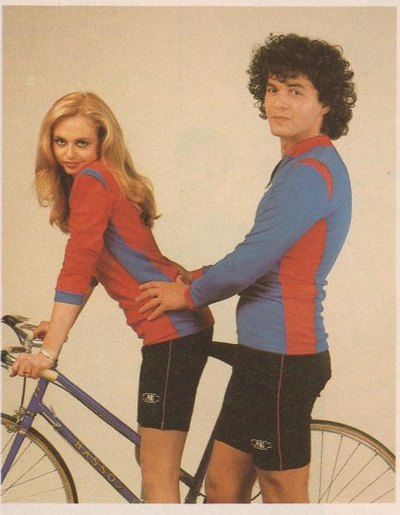On Tuesday I posted about how and why pursuing career puts women on the back foot when it comes to love and partnering. Ergo stacks of “successful” women are single.
I made all kind of generalisations about male-female behaviour – which I don’t back away from. Many of you made a lot of great comments. The topic will always fire up debate. It’s juicy and real and we don’t really have answers. So we speculate and dig around.
Darren Saunders on Twitter alerted me to this Slate article – The Eligible Bachelor Paradox – which adds another crusty layer to the debate. It answers a few of the point some of you raised. It uses game theory to explain why there are more hot single smart women in their 30s than hot single smart men. As the writer says….
The problem of the eligible bachelor is one of the great riddles of social life. Shouldn’t there be about as many highly eligible and appealing men as there are attractive, eligible women?
He concludes, no. Here’s why:
He explains it in terms of auction bargaining power – “Consider the classic version of the marriage proposal: A woman makes it known that she is open to a proposal, the man proposes, and the woman chooses to say yes or no. The structure of the proposal is not, “I choose you.” It is, “Will you choose me?” A woman chooses to receive the question and chooses again once the question is asked…
You can think of this traditional concept of the search for marriage partners as a kind of an auction. In this auction, some women will be more confident of their prospects, others less so. In game-theory terms, you would call the first group “strong bidders” and the second “weak bidders.” Your first thought might be that the “strong bidders”—women who (whether because of looks, social ability, or any other reason) are conventionally deemed more of a catch—would consistently win this kind of auction.
But this is not true…auctions will often be won by “weak” bidders, who know that they can be outbid and so bid more aggressively, while the “strong” bidders will hold out for a really great deal… consider that with a lot at stake in getting it right in one shot, it’s the women who are confident that they are holding a strong hand who are likely to hold out and wait for the perfect prospect.
Ergo, the Eligible-Bachelor Paradox.
The pool of appealing men shrinks as many are married off and taken out of the game, leaving a disproportionate number of men who are notably imperfect (perhaps they are short, socially awkward, underemployed). And at the same time, you get a pool of women weighted toward the attractive, desirable “strong bidders.”
Where have all the good men gone? Wait for it, this is the BIG BIG point:
Married young, most of them—and sometimes to women whose most salient characteristic was not their beauty, or passion, or intellect, but their decisiveness.
This is really key! End of day, it’s women who choose. It’s best we choose. This is how evolutioinaryily it has worked best (within reason: I’m essentialising, of course). I always say that once women realise this, they’re empowered. And can simply focus on being decisive – whatever their decision might be. All this should never mean sacrifycing careers or PhDs or our smarts. We just get confident. And take responsibility.
Decisiveness and certainty of our gender positioning (ie feeling grounded and strong in our feminiity or masculinity) is always going to be productive and lead to stable, strong, sure outcomes. For everyone.
The next question, then, is why is that career-focused women are less decisive? Me, I know I’m indecisive. Is this why I turned to career – cos it’s certain and is mostly about making external decisions, as opposed to decisions that stem from within? Or has my focus on career dragged me away from my intuitive, feminine centre where I make the best, most true decisions?


